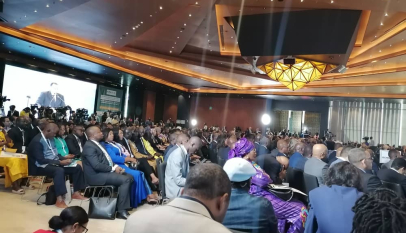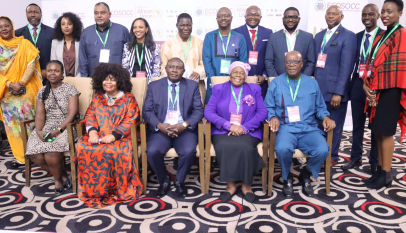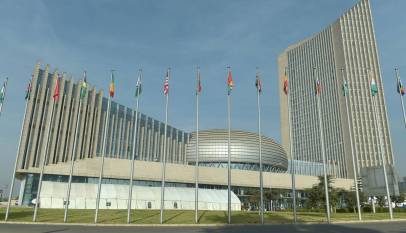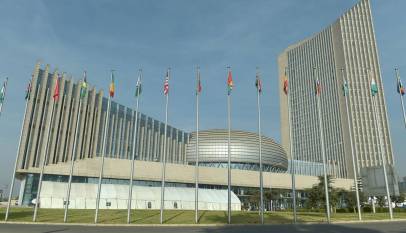INDEPTH | Inaugural Africa Integration Day: Underscoring industrialization’s integral role in Africa’s integration
In commemoration of the maiden Africa Integration Day, the African Union Development Agency (AUDA-NEPAD) and the AU Commission, hosted stakeholders to a webinar discussion, exploring the urgency of boosting Africa’s industrialization drive, as the continent readies to implement the AfCFTA
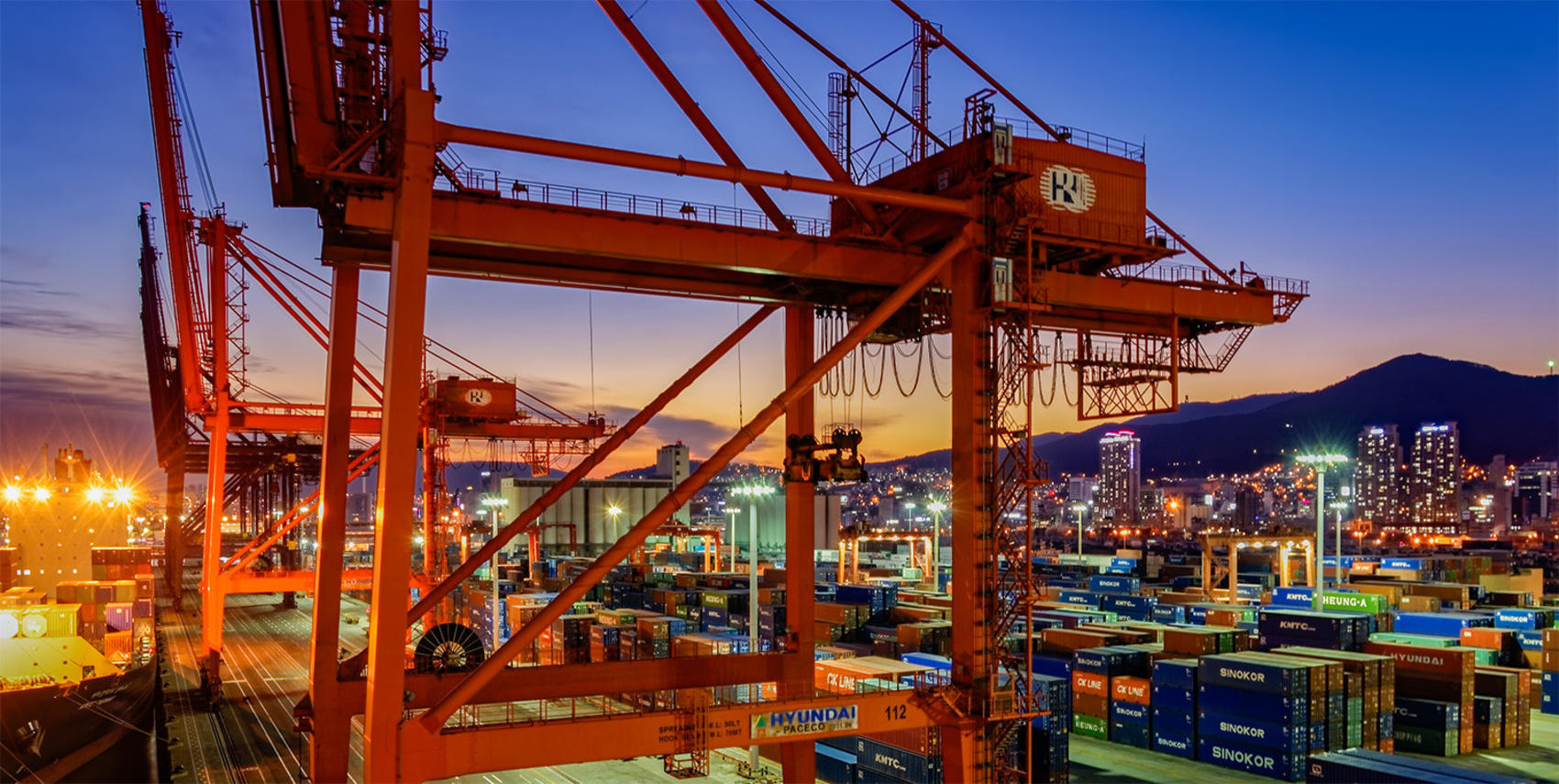
July 7th was declared as Africa Integration Day by the Assembly of Heads of State and Government of the African Union (AU Assembly), on the occasion of the Twelfth Extraordinary Session of the AU Assembly, focused on the African Continental Free Trade Area (AFCFTA), held July 7-8, 2019, in Niamey, Niger. Subsequently, trade under the AfCFTA was agreed to commence July 1, 2020.
However, the outbreak of the COVID-19 pandemic necessitated its postponement to January 1, 2021. Now, ahead of the summit of African Heads of State on Industrialization and Economic Diversification, scheduled for November in Niamey, and also, in commemoration of the maiden Africa Integration Day: July 7, 2020, the African Union Development Agency (AUDA-NEPAD), the AU Commission and the United Nations Industrial Development Organisation (UNIDO), Monday, hosted high-level industrial development stakeholders from across Africa to a webinar discussion.
Themed: ‘Re-booting Africa’s Industrialisation to Generate National [Continental] Wealth and Create Jobs along AfCFTA Implementation,’ the webinar explored the vital importance cum utmost necessity for synergy between the commencement of trade under AfCFTA and fast-tracking of Africa’s industrialization.
Fragmented economy bane of Africa’s industrialisation – Mayaki
While welcoming participants to the webinar discussion, CEO of AUDA-NEPAD H.E Ibrahim Mayaki, said the most critical challenge for African policymakers in the coming decades would be finding jobs for its burgeoning youth population, warning that, failure to do so could lead to social turmoil and breakdown of governance systems.
Dr Mayaki said although majority of young Africans still lived in rural areas, more of them were migrating to urban areas in a bid to escape poverty and access opportunities. He described such movement as “not a classical urbanisation process; rather a ruralisation of cities. Because that urbanization has not been accompanied by industrialization. Agricultural transformation can help create industrialization where urbanization takes place.”
However, Mayaki said industrialization won’t happen in Africa with its current fragmented economic and industrial structure represented by the respective 55 national economies of the Member States of the AU and their associated individual industrial policies, describing the prevailing economic structure as the major obstacle to the continent’s development.
He therefore described the AfCFTA as the continent’s savior, one that “allows us to think regionally and continentally”. “So, with that matrix [of AfCFTA], we can launch a policy design process which helps correct the errors of the past and lead us on the way to a regional and continental industrialization. I repeat, 55 national industrial policies will fail!” cautioned Mayaki.
Going forward, he said, as Africa readies to begin implementation of the AfCFTA, the continent needed to seriously look at very important issues namely, gaps of implementation; legislative measures necessary to ensure smooth implementation; as well as institutional reforms necessary for the AfCFTA to succeed.
We’ll launch the AfCFTA come January 1, 2021 – Commissioner Muchanga
In his remarks, H.E Albert Muchanga, commissioner of trade and industry at the AU Commission, said as the population of the world and that of Africa increased, the demand for industrial products was also increasing, citing an estimate by McKinsey & Company that said, demand for manufacturing products in Africa, particularly agricultural products, would grow from USD500 billion in 2016 to USD930 billion by 2025.
“There is also demand for export diversification in Africa; it’s clear the era of commodity dependence is a bygone era. If we continue to be dependent on commodities, in terms of their production and export, we are still living in the past. We need to diversify our export by engaging in trade in value-added products,” said Muchanga.
For Africa to reboot its industrial development and attain true economic integration, Muchanga said, the continent must develop Regional Value Chains (RVCs) as a major precondition for greater integration into Global Value Chains (GVCs); invest in original design cum original brand manufacturing; invest in industrial skills development through the establishment of manufacturing, industrial design and agro-processing institutions, to train its required cadre of industrialists and industrial workers.
In addition, Commissioner Muchanga said the continent must invest in research and development (R&D) so as to produce distinctly African products, urging national governments to fulfil the AU’s recommendation of investing at least, 1% of their GDPs on R & D, so as to adequately fund academic research on industrial development. He also advised AU member states to ensure synergy and collaboration between government, the organized private sector and academia, so as to bridge the gap between industrial policy, research and industry.
Thanks to the AfCFTA, Muchanga said Africa’s new domestic market would no longer be the individual markets of the 55 AU countries; instead, it was now a market of Africa’s over 1.27 billion people, which makes the continent the third largest market in the world, after China and India. Subsequently, he said, the AfCFTA would give Africa’s hitherto fragmented market the opportunity to enjoy economies of scale and scope.
“The key word in rebooting [industrialization] is de-fragmentation. The new domestic market for Africa is the AfCFTA – a market of 1.27 billion people. Majority of African countries have GDPs that are so low that they can’t enjoy the advantage of economies of scale and scope. We must really have faith in the AfCFTA, and we are going to launch it on January 1, 2021. There may be no vaccine then but we are still going to launch it; we are committed to launching it!” said Muchanga
Africa must boost industrial capacity for intra-African trade to happen – Ahmed
Mr Mansur Ahmed, president of the interim steering committee of the Pan-African Manufacturers Association (PAMA), said unless Africa created the industrial capacity to produce the goods and services that would be traded in the AfCFTA, boosting of intra-African trade would not happen.
“Indeed, the COVID-19 pandemic has opened our eyes to our problems; between February and June, PAMA and the AU Commission made strenuous effort to find African producers for some of the basic requirements for responding to COVID-19. We found that not one African countries had the capacity to produce more than their individual needs; in fact, most African countries didn’t even have the capacity to produce enough for their own local consumption, even for basic items such as face masks and sanitizers,” he recounted.
Mr Ahmed therefore recommended the building of public and private continental institutions that would support the continent’s integration efforts, noting that continental economic integration wouldn’t happen until individual businessmen and private sector organizations from across the 55 states, embarked on partnerships that would allow them the opportunity to leverage the strengths of each other, through bodies such as PAMA and the Federation of African Pharmaceutical Manufacturers Associations (FAPMA).
“This partnership must address the issue of building skills so as to facilitate the development of industrial capacity and production. We also need to build partnerships between the private sector, the academia and government. For instance, in Nigeria, we have established a triple helix institution, which is a partnership between universities, industries and the government. Without this kind of partnership, it would be difficult to direct the kind of R & D that we need to develop quickly and rapidly,” he said.
Ahmed harped on the importance of cross-border infrastructure such as transport corridors that would connect African countries with one another and consequently allow for the development of the value-chains for varied products and commodities. He said, developing production capacity for specific commodities or products in one part of the continent and linking it up with markets with processing capacity in another part of the value-chain, would not only facilitate intra- African trade but also boost the continent’s capacity for industrial production.
“For instance, since Ghana or Côte d’Ivoire produce large quantities of cocoa, there is no reason why we cannot scale cocoa production there, and then link it up with larger markets in Nigeria or South Africa, where we have tremendous capacity for manufacturing chocolates. I think integration must not just be limited to trade but should also include integration of production and investment capacities,” he proposed.
Service industry: Africa’s alternative path to industrial development – Professor Signé
While speaking about a recent research conducted by the Brookings Institution, titled Industries Without Smokestacks: Industrialization in Africa Reconsidered, Professor Landry Signé, senior fellow at the Africa Growth Initiative at Brookings, said, between 1998 and 2015, export in smokestacks-less from Africa had grown 6 times than export in traditional manufacturing industries, which presents the services industry as Africa’s potential alternative path to industrial development.
Professor Signé described the service industries as development accelerators thanks to their tradability, exportability, high productivity as well as capacity to absorb high numbers of moderately-skilled workers, thereby addressing Africa’s unemployment challenges. “These industries include horticulture, industries related to the Fourth Industrial Revolution (4IR), ICT-based services, amongst others. So, it is really important that when we think about traditional manufacturing, we also think of industries without smokestacks,” he advised.
By 2030, Signé said, the combined consumer and business spending of Africa’s 1.7 billion people would reach USD6.7 trillion adding that, based on current projections, between 2015 and 2035, Africa’s working-age population would grow by an estimated 450 million people. “20% of those people will be working in the traditional service sectors; 5% will be very well paid while 75% of will be entrepreneurs including those working in the informal sectors,” he said.
Thus, Signé said it was critically important to unlock Africa’s manufacturing and industrial potentials through progressive policies on infrastructure, economies of scales, trade and exchange rates, public investment and regulatory reforms, which will unlock the continent’s export potential in non-traditional export sectors. He also urged governments across the continent to work towards increasing productivity, improving sustainability as well as ensuring structural transformation.
We’re lacking infrastructure: energy, transport, ICTs – COMESA
While providing state of the industrialization drive in her region, Providence Mavubi, director in charge of industry and agriculture at the Common Market for Eastern and Southern Africa (COMESA), said her organization had developed a common industrial policy for the COMESA region as well as a strategic implementation framework to guide its member states in adopting the policy.
Consequently, Mavubi said COMESA was promoting regional agro-based value chains for products such as cassava and leather as well as promoting ease of doing business through the Investment Agreement for the COMESA Common Investment Area. She said, as a REC, COMESA had also developed guidelines for facilitating joint regional industrial value chain development, which had given birth to projects such as the Zambia-Zimbabwe Pilot Industrial Project.
Ms Mavubi however noted that despite appreciable progress in some COMESA countries who had been consistent in terms of policy formulation and had shown political commitment in implementing such policies, they were grappling with a number of setbacks.
“There is lack of adequate infrastructure in energy, road networks, ICTs, leading to high cost of transport, electricity and other utilities. There is high cost of doing business due to issues like bureaucratic restrictions and gaps in the way different member states implement policies. There is also poor supply chain logistics namely poor road and railway networks, to and from production areas, border clearance bottlenecks and insufficient air links,” she complained.
Other challenges hindering industrialization efforts in the COMESA region, according to Ms Mavubi, were insufficient and low quality raw materials which meant industries had to import raw materials from countries as far away as China and Brazil; insufficient market information which makes trade between different market players difficult; insufficient access to technologies and machineries; as well as lack of coordination among value chain actors at REC and member states level.
How we plan to industrialise Niger – Minister Amirou
H.E. Zaneidou Amirou, the Republic of Niger’s minister of industry, in his address, said in order to achieve industrialization, Africa needed not to only build industrial zones, but also transport infrastructure as well as creating free trade zones which would improve transformation of raw materials to finished products and the subsequent transportation of local products across the continent.
Minister Amirou said such industrial zones would constitute large industrial entities which would create massive employment opportunities, and consequently stimulate local markets and satisfy national, sub regional, regional and continental needs. In this direction, he said, Niger was currently building a 2400-hectare industrial zone in Niamey which would stimulate economic growth and create 5000 jobs within a period of 10 years.
In addition, he said the government of Niger was planning efficient transport infrastructure for the country such as roads, rail links, including linking up the country to the sea, which he said, would strengthen the export of goods and services by bringing down the cost of transportation, adding that the country was working to stabilize its macroeconomic environment and provide necessary legislative frameworks to attract local and foreign direct investment.
Stakeholders at the inaugural Africa Integration Day convening unanimously agreed on the AfCFTA’s potential in accelerating Africa’s integration. However, they noted the indispensability of industrial development as a key driver of regional integration, hence the necessity of fast-tracking the formulation and implementation of unified industrial policies by the Heads of State and Government of the African Union.


